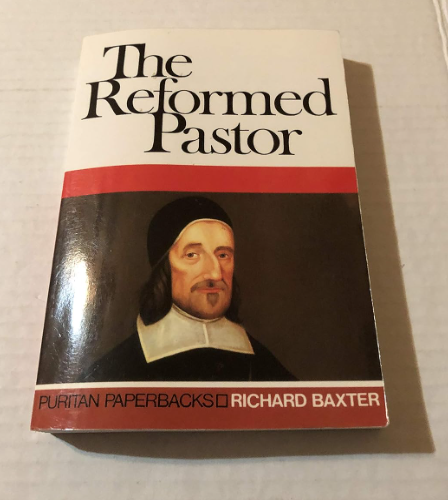The Reformed Pastor and the Power of Personal Ministry: Richard Baxter's Legacy
This is the continuation of my reflection on Richard Baxter’s book, The Reformed Pastor. In my last post, I shared that the book is all about the importance of pastoral visitation emphasizing the direct engagement between ministers and their congregations for spiritual and practical care.
In this post, I want to share first the historical context in which Baxter applied his vision of personal care. Here we learn that he lived in a time of great turmoil and extreme challenges.

The first of these is the dilemma initiated by King Charles I's sponsorship of a church style that leaned towards Roman Catholic practices. Such unsettling changes posed by King Charles I challenged the stance of the Protestant Reformation.
As England struggled with the implications of these developments, the fundamental question arose: Would the nation persevere in its commitment to the Protestant Reformation, or risk regression towards pre-Reformation ideals? Hence, we learn from this reminder to uphold theological integrity despite the currents of cultural influence and urge contemporary believers to remain vigilant in preserving the core tenets of their faith amidst inconsistencies.
Oliver Cromwell's death in September 1658 was another tragic event that severely disrupted the Protestant cause. For Richard Baxter and the other ministers, the fall of his son Richard's government and the return of the monarchy had a profound effect. Baxter and almost two thousand other ministers faced a crisis of conscience when the Church of England set rigorous rules for ministry. Baxter's early optimism gave way to bitter pessimism by 1662, as he was denied the chance to preach in Kidderminster and to say goodbye to his flock.
The above are just selective instances that characterized the times when Baxter implemented his vision of pastoral care. He recognized that intimate pastoral engagement was indispensable. The insight presented herein underscores the harmonious relationship between personal, pastoral visitation and public ministry: while public preaching may attract attention on the one hand, and may sometimes instill the heart of the flock to obey and follow God’s commands, it is personal pastoral care on the other that sustains and deepens the spiritual life of the congregation. The former, when properly done, is undoubtedly good according to Baxter, but it would not suffice, constant care and a healthy relationship with the congregation would do the job. He found that preaching alone cannot achieve the reformation he aimed for; hence it must necessitate a personalized, one-on-one discussion as well.
In 1684, reflecting on the tumultuous events of the preceding decades, Richard Baxter recognized the enduring impact of the trials he had faced. The disappointment stemming from being denied the opportunity to preach in Kidderminster and the forced separation from his congregation left a serious wound on Baxter's spirit. Despite these setbacks and the personal hardships he endured, Baxter's commitment to his principles remained steadfast. This resilience is perhaps most evident in his seminal work, The Reformed Pastor. In this influential text, Baxter laid out his vision for pastoral ministry with clarity and conviction, also the importance of personal pastoral care and the diligent application of biblical principles in the face of adversity. The enduring relevance of The Reformed Pastor as a guide for ministers centuries after its publication is a testament to Baxter's enduring dedication to his faith and his unwavering belief in the transformative power of sincere pastoral engagement.
Posted Using InLeo Alpha

Congratulations @axietrashgame! You have completed the following achievement on the Hive blockchain And have been rewarded with New badge(s)
Your next target is to reach 300 upvotes.
You can view your badges on your board and compare yourself to others in the Ranking
If you no longer want to receive notifications, reply to this comment with the word
STOPCheck out our last posts: